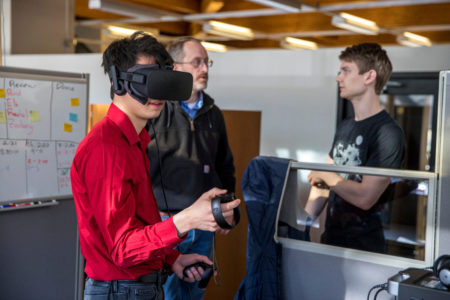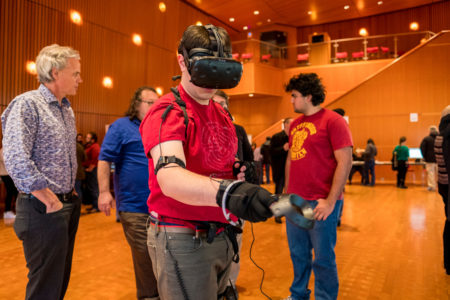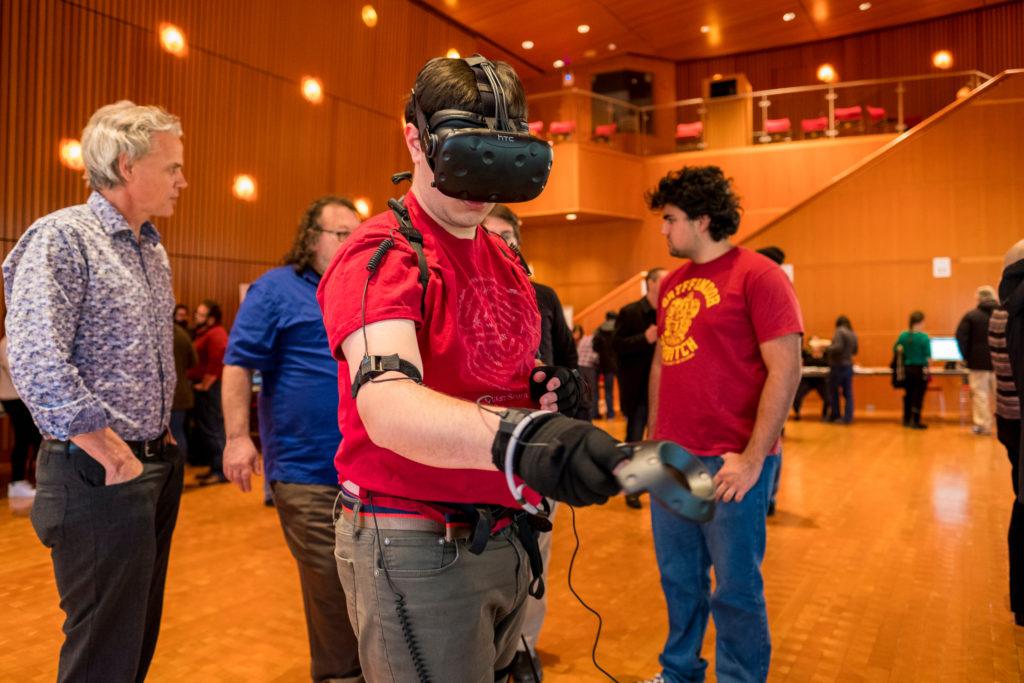By Kelly Page
pagekell@grinnell.edu
Next week, Grinnell students can explore new uses of virtual reality, learn about ethical data visualization and see various guest speakers talk on the future of data. These activities can all be found on the posters hanging around campus advertising I Love Data Week at the College.
The week is the College’s answer to various data-appreciation weeks, which are held annually at colleges around the country. Katie Walden, a digital liberal arts specialist for the College, played a big part in organizing the week.
“We wanted to dispel that myth that only certain people work with data … because no matter where you are on the spectrum of being a data person, not being a data person, being interested in issues of advocacy, equity and social justice, there is room for everyone in these conversations and I hope that students are able to attend,” she said.
The effort to involve students who may not see how their academic or personal lives overlap with data grew out of observations made by the people behind Data Analysis and Social Inquiry Lab and data services in the library. Many students in the humanities often do not reach out to them for help with data resources. They hope that humanities majors and undeclared first- and second-years learn that, although they are not studying math or social sciences, they can be empowered through an understanding of data science.
“We are all connected to data structures and I think for a lot of students, and I put myself in this boat, I have a humanities background, I am not trained as a data scientist, but yet to live in the 21st century world, in order to participate fully, you need to know what’s going on with data and not be scared of it,” Walden said.
I Love Data Week happened to overlap with Sex Week at the College, as well as The Wilson Center’s hackathon, HackGC, so, as Walden explained, “We just took all the weeks of hack and sex and data and put them together.” That is why the posters for the week include STI testing and a Pub Quiz themed around reproductive justice and public health data.
Other notable events occurring during the week include “Student Experience as Data,” where students can learn about the results of the student-athlete social norms survey (11:30 a.m. to 1 p.m. February 12, Noyce 2021), and a Humanities Center Guest Speaker named Karen Tabb Dina who studies ways to assess depressive symptoms in health care settings to improve health outcomes for women (7:30 p.m. February 13, JRC 101). Students can also participate in two Data Challenges in which they can learn more practical skills for data visualization (7:30 to 9 p.m. in the Forum’s Digital Liberal Arts Laboratory on February 11 and 14).
Another particularly interesting aspect of the week is the involvement of the Grinnell College Immersive Experiences Lab, which is hosting a virtual reality (VR) workshop. Most students are probably unaware of the Immersive Experiences Lab, which focuses on finding ways to use virtual reality in the liberal arts and may point towards an exciting new horizon in education.
Digital Liberal Arts Specialist David Neville, who started the lab, believes that VR is the future of the liberal arts and that one day students may carry VR headsets around with them to classes.
“It would do so much to augment a liberal arts education. For instance, if there was an app to investigate the Roman Colosseum and you go over to the fieldhouse where you don’t have any walls to walk into and you have your headset on that doesn’t have any cables, essentially you could walk through the Colosseum and get a sense of the scale of it and what went on in there,” he said.
Students who attend the VR workshop on Feb. 15 from 4-5:30 p.m. in the Forum’s Digital Liberal Arts Laboratory will be able to explore ancient Mayan architecture using a VR experience created by Heather Richards-Rissetto, assistant professor of anthropology at the University of Nebraska.
Neville said, “It’s data about something that you can experience and look at and interact with and visualize and have a sense of presence in, and not necessarily some data that’s just on an Excel spreadsheet.”































































